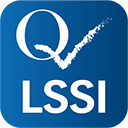Walking in faith through adversity: Theological education in the Middle East
The Middle East, a region marked by political turbulence, religious conflict, and a deep, often painful, history, provides a complex yet rich backdrop for theological education.
07 APRIL 2025 · 10:27 CET
Cropped(2).jpg)
In reflecting on the unique challenges and opportunities of theological education in the Middle East, I am reminded of David Bosch’s concept of the road as teacher: guiding us through a transformative path that, while fraught with difficulties, reveals God’s faithfulness.
The Middle East, a region marked by political turbulence, religious conflict, and a deep, often painful, history, provides a complex yet rich backdrop for theological education. The experiences encountered here deepen faith, forcing a confrontation with real-life implications of being a Christian in a world of tension and persecution.
Roots of theological education in the Middle East
The origins of theological education in the Middle East, both formal and non-formal, can be traced back to its early development. The monastic movement, which has deep roots in the Middle East and North Africa (MENA) region, served as a foundation for spiritual formation. Early monasteries were not only centers of worship but also places of theological learning and discipleship. Even earlier, formal theological education had already begun with institutions such as the Catechetical School of Alexandria, one of the most influential centers of Christian learning in the early Church. Founded in the second century in Alexandria, Egypt, it played a pivotal role in shaping Christian theology, biblical interpretation, and apologetics, particularly in its engagement with Greek philosophy. Such institutions became central hubs for the study of Scripture, doctrine, and philosophy. Meanwhile, non-formal theological education, including community-based study groups and oral traditions, has been equally vital in transmitting religious knowledge outside academic settings. Both formal and non-formal approaches have profoundly shaped the way theological teachings are preserved, passed down, and understood throughout history.
Many Christians here are faced with persecution, social exclusion, and the tension between faith and survival
The road of theological education in this context is anything but straightforward. The exodus of Christians from the region has intensified in recent years, and with it, the complexity of theological training. How do we encourage students to resist the temptation to emigrate and choose instead to continue their mission of service to the MENA Church and broader society? Yet, within these challenges lie immense opportunities. New schools and creative methods of theological training are emerging, providing hope toward resilience. God is at work through the growing number of students eager to learn and be equipped, despite the harshness of their circumstances. These students, far from being discouraged, embody a resilient hope that is crucial to the Church’s future in the Middle East.
Innovation in theological education: Overcoming barriers
Opportunities also arise in the innovative ways theological education is adapting. In a region where physical borders are constantly shifting, digital platforms and other creative educational models offer new avenues for teaching and learning. While traditional brick-and-mortar institutions face obstacles, technology opens up opportunities to reach a wider population, crossing boundaries and offering access to students who might otherwise be isolated. These shifts are not just about overcoming logistical challenges; they are about finding new ways to live out the gospel in the face of hardship.
Theological institutions must operate in environments where governments may impose restrictions on religious education or where security concerns disrupt normal academic activities
Theological education in a fractured world
Geopolitical instability further complicates the situation, often ignoring the plight of Christians. And the fracturing of societies affects how theological education is delivered. Theological institutions must operate in environments where governments may impose restrictions on religious education or where security concerns disrupt normal academic activities. War, forced migration, and sectarian conflicts contribute to the fragmentation of societies, creating diverse and often polarized communities. In this context, traditional theological education models may not be effective in reaching displaced or persecuted Christian communities. This forces theological educators like myself to reconsider traditional models. We must grapple with the question: How can theological education remain relevant and impactful in a world where crises seem never-ending? The answer, I believe, lies in training individuals who can be agents of change and healing within their communities. We are not just educating for theological knowledge; we are educating for peace, for justice, and for resilience. Therefore, courageous, wise ambassadors of Christ’s timeless teachings are essential.
Through it all, I am continually inspired by my students who teach me daily what it means to live faithfully in the face of suffering. Despite living under oppressive regimes, in communities that often view their faith with suspicion, or even with outright hostility, these students persist. They embody the radical love and peace that the gospel calls for, often at great personal cost. In moments of doubt, I remember their courage and faith, which serve as a reminder of why this journey matters.
The theological educators, the students, and the Church as a whole are being shaped, not just to study doctrine, but to embody Christ’s teachings in a fractured world
As I reflect on the broader impact of theological education in the Middle East, it becomes clear that this is not merely an academic endeavor; rather, it is spiritual. The theological educators, the students, and the Church as a whole are being shaped, not just to study doctrine, but to embody Christ’s teachings in a fractured, hurting world. Our mission is not only to teach but to equip the next generation of leaders who will walk in faith, live out the gospel in the face of suffering, and bring about peace in a world that desperately needs it. The road ahead may remain uncertain, but as long as we walk it faithfully, God’s presence will continue to guide and shape us.
I am humbled to witness the resilience of the Church in the Middle East. The work of nurturing faith amidst turmoil and uncertainty is both a challenge and a calling. The history of the Church in the Middle East has shown me that some of the most profound moments of spiritual growth emerge from suffering. It’s in these difficult and uncertain junctures that faith is tested, refined, and deepened. As I witness this firsthand, I realize that the perseverance of Christians here is not a passive endurance but an active, living testimony to God’s faithfulness. In the midst of turmoil, I see that God does not abandon His people, even when circumstances seem to suggest otherwise.
The challenges we face provide an opportunity to teach the wider Church about principles that transcend borders and conflicts
I also recognize that the Church in this region serves as a powerful witness to the global Christian community. What I experience here can inspire believers around the world to cultivate a deeper appreciation for their own faith and to live out the gospel with greater commitment. The challenges we face provide an opportunity to teach the wider Church about the depth of God’s love, justice, and peace, principles that transcend borders and conflicts. Through it all, I am reminded daily that God’s faithfulness is the greatest lesson this road has to offer.
Grace Al-Zoughbi, a Palestinian Christian theological educator from Bethlehem. She is passionate about the development of theological education in the Middle East. This article was first published on the blog of the Arab Baptist Theological Seminary (Lebanon) and re-published with permission.
Published in: Evangelical Focus - Middle Eastern Perspectives - Walking in faith through adversity: Theological education in the Middle East










